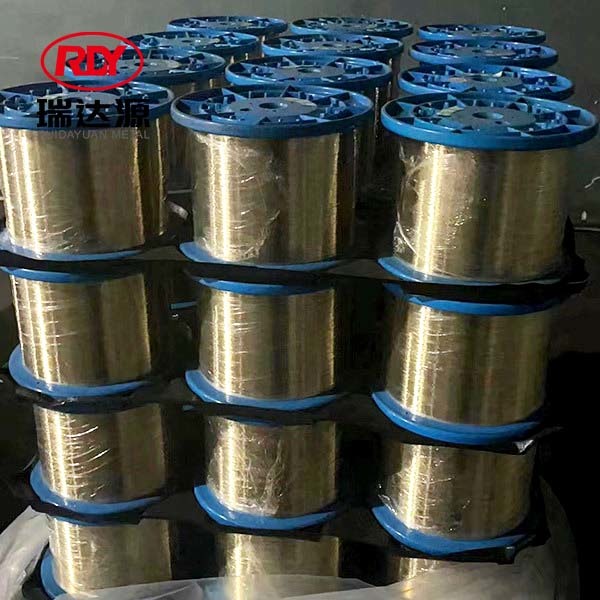Understanding Copper Steel Wire: Applications and Benefits in Construction
Release Time:
Sep 26,2025
Copper steel wire, as the name suggests, combines the excellent conductivity of copper with the strength and durability of steel. This hybrid material is particularly beneficial in various applications within the construction sector, where both electrical conductivity and mechanical strength are essential. One of the most notable advantages of copper steel wire is its corrosion resistance. Unlike

Copper steel wire, as the name suggests, combines the excellent conductivity of copper with the strength and durability of steel. This hybrid material is particularly beneficial in various applications within the construction sector, where both electrical conductivity and mechanical strength are essential.
One of the most notable advantages of copper steel wire is its corrosion resistance. Unlike traditional steel, which may rust over time when exposed to moisture, copper offers a protective patina that helps resist corrosion. This feature is especially advantageous in construction environments that are prone to humidity or other harsh conditions. Using copper steel wire can significantly extend the lifespan of structures, reducing maintenance costs over time.
Additionally, copper steel wire excels in electrical applications. Its superior conductivity makes it an ideal choice for grounding systems, electrical wiring, and various high-performance connections. For construction projects that require safe and efficient electrical systems, utilizing copper steel wire can enhance overall performance while ensuring compliance with safety regulations.
In terms of structural applications, copper steel wire is often used in the reinforcement of concrete structures. Its tensile strength provides increased support, allowing for thinner sections of concrete without compromising structural integrity. This can result in cost savings for materials and labor, making projects more efficient.
The versatility of copper steel wire also allows it to be used in decorative applications. Whether for architectural accents or functional components, its aesthetic appeal combined with practical benefits makes it a popular choice among architects and designers. The ability to combine strength with beauty opens new avenues for creative design in construction.
Moreover, the process of manufacturing copper steel wire involves eco-friendly practices, making it an excellent option for sustainable construction projects. Many manufacturers are adopting greener production methods, contributing to reduced environmental impact while maintaining high-quality standards.
When selecting copper steel wire for your construction projects, it's important to consider factors such as diameter, tensile strength, and intended application. Collaborating with suppliers familiar with the latest advancements in materials can provide insights tailored to specific project requirements.
In summary, copper steel wire is a remarkable material that offers a blend of durability, conductivity, and aesthetic appeal, making it an ideal choice for various applications in the construction industry. By leveraging the unique properties of copper steel wire, professionals can enhance both the functionality and design of their projects, ultimately leading to more efficient and long-lasting constructions.
One of the most notable advantages of copper steel wire is its corrosion resistance. Unlike traditional steel, which may rust over time when exposed to moisture, copper offers a protective patina that helps resist corrosion. This feature is especially advantageous in construction environments that are prone to humidity or other harsh conditions. Using copper steel wire can significantly extend the lifespan of structures, reducing maintenance costs over time.
Additionally, copper steel wire excels in electrical applications. Its superior conductivity makes it an ideal choice for grounding systems, electrical wiring, and various high-performance connections. For construction projects that require safe and efficient electrical systems, utilizing copper steel wire can enhance overall performance while ensuring compliance with safety regulations.
In terms of structural applications, copper steel wire is often used in the reinforcement of concrete structures. Its tensile strength provides increased support, allowing for thinner sections of concrete without compromising structural integrity. This can result in cost savings for materials and labor, making projects more efficient.
The versatility of copper steel wire also allows it to be used in decorative applications. Whether for architectural accents or functional components, its aesthetic appeal combined with practical benefits makes it a popular choice among architects and designers. The ability to combine strength with beauty opens new avenues for creative design in construction.
Moreover, the process of manufacturing copper steel wire involves eco-friendly practices, making it an excellent option for sustainable construction projects. Many manufacturers are adopting greener production methods, contributing to reduced environmental impact while maintaining high-quality standards.
When selecting copper steel wire for your construction projects, it's important to consider factors such as diameter, tensile strength, and intended application. Collaborating with suppliers familiar with the latest advancements in materials can provide insights tailored to specific project requirements.
In summary, copper steel wire is a remarkable material that offers a blend of durability, conductivity, and aesthetic appeal, making it an ideal choice for various applications in the construction industry. By leveraging the unique properties of copper steel wire, professionals can enhance both the functionality and design of their projects, ultimately leading to more efficient and long-lasting constructions.
Keywords:
Related news



